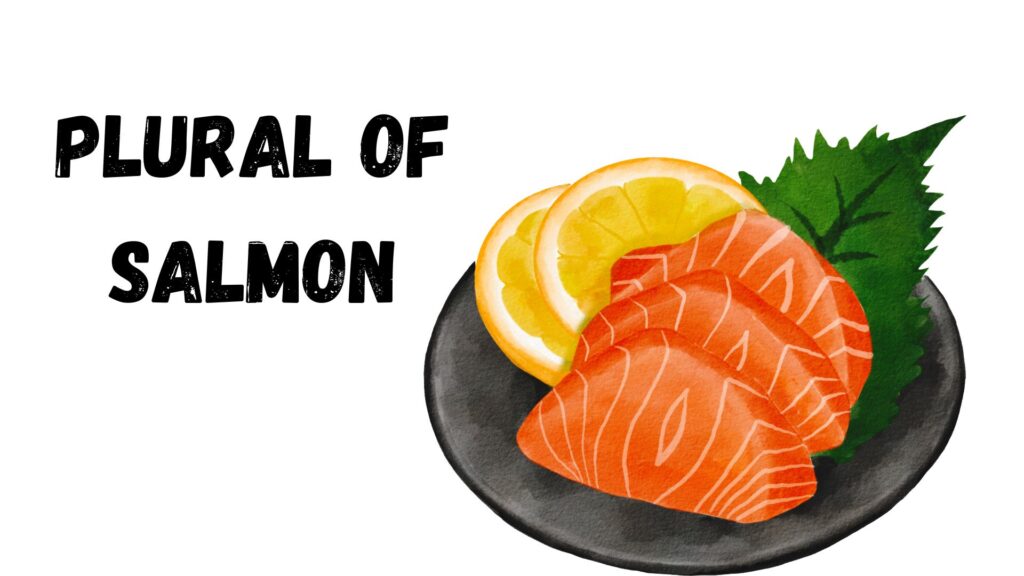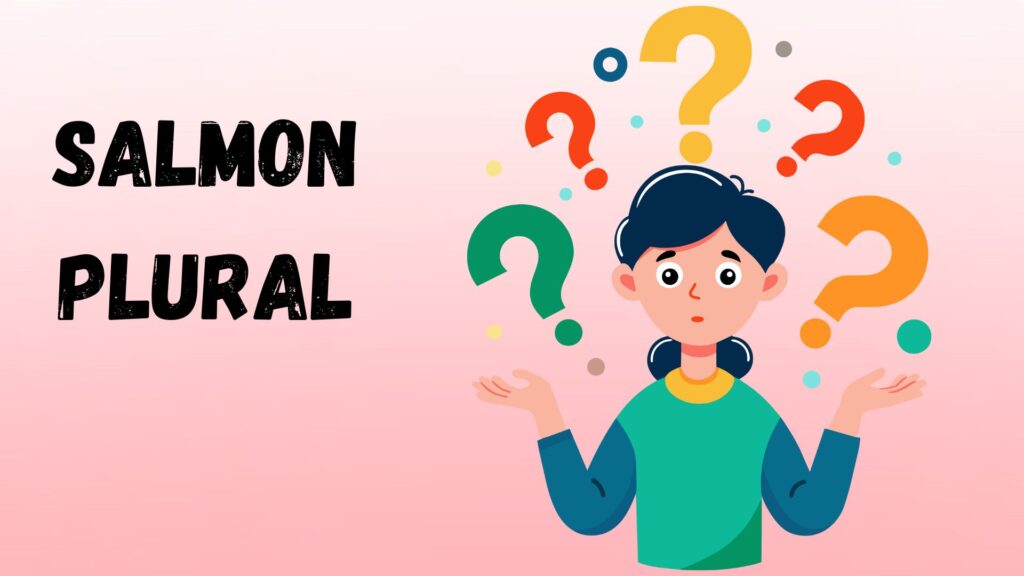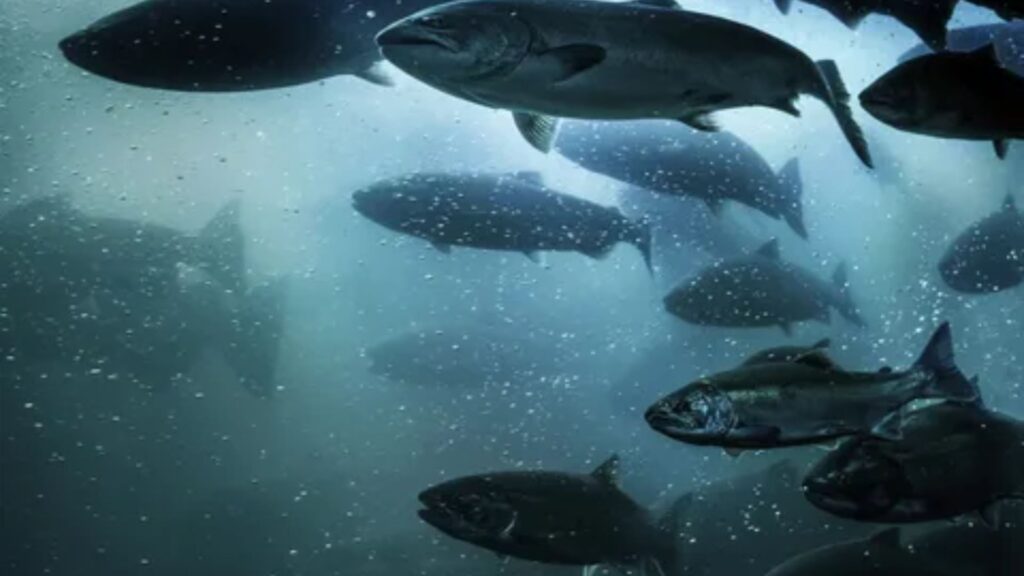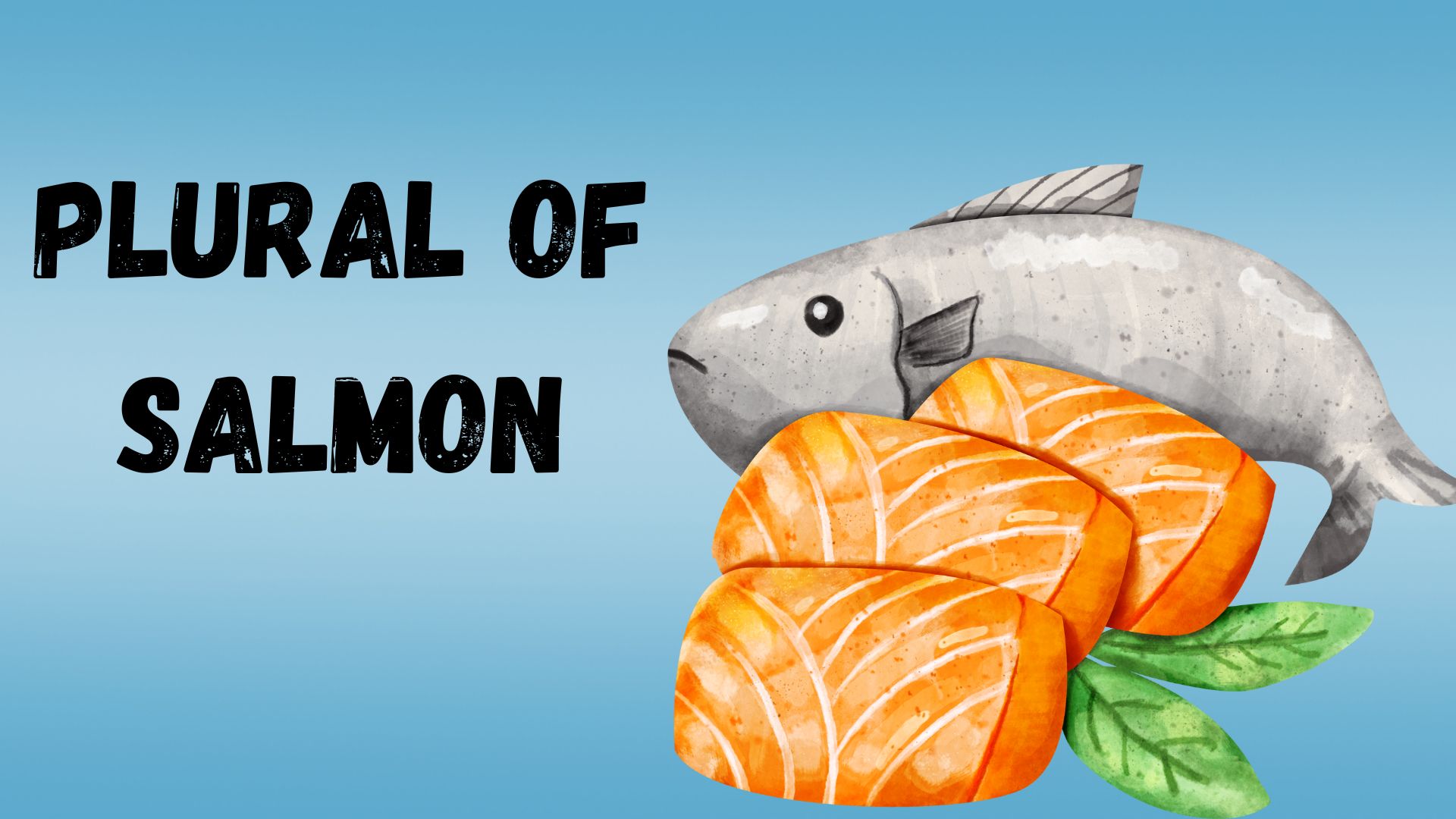If you’ve ever found yourself staring at a menu, wondering whether it’s grammatically correct to say “two salmons,” you’re not alone. The English language is packed with quirks, and fish names especially salmon are no exception. So, let’s settle this once and for all: What’s the plural of salmon?
✅ The Short Answer: It’s Still “Salmon”

Yes, you read that right. The word salmon is one of those rare irregular plural nouns in English that doesn’t change in its plural form. Whether you’re talking about one fish or a dozen, salmon remains the same.
Singular: I caught a salmon.
Plural: We caught ten salmon this morning.
But don’t worry we’ll go deeper than just the rule. Let’s explore usage, exceptions, and some real-world examples that help clear up any lingering confusion.
🧠 Why Doesn’t “Salmon” Change in the Plural?
English borrows heavily from other languages, and “salmon” comes from Old French (salmun), which was derived from Latin (salmo). Like deer, moose, elk, and bison, salmon belongs to a group of wildlife terms that resist pluralization in the traditional “add -s” way.
This often happens with animal names, especially fish species. Words like trout, cod, and halibut also follow this pattern.
So, when you’re talking about fish as food, or even in scientific contexts like salmonid populations, the plural will always be salmon no matter how many you’re referring to.
📚 What Do the Dictionaries Say?
Let’s pull up trusted sources like the Cambridge Online Dictionary, which defines salmon as:
“A medium-sized silver-colored fish, or the pink-orange meat of this fish.”
And under plural? It just says:
Plural: salmon
No change. The Oxford Learner’s Dictionary and Merriam-Webster confirm the same. In fact, you’d have a hard time finding any dictionary that recommends “salmons” as a valid plural.
That said…
🧯 Wait Is “Salmons” Ever Correct?

You might be surprised to hear that the form “salmons” does occasionally appear but it’s rare and very specific.
In certain academic or scientific discussions, where you’re referring to different types or species of salmon, the plural form “salmons” can be used for emphasis.
For instance:
- “The Pacific and Atlantic salmons differ greatly in spawning behavior.”
However, this usage is technical and isn’t common in everyday English. You’ll find it more often in biology textbooks, the Hansard archive, or environmental reports discussing issues like pollution’s impact on fish or the differences between farmed vs wild salmon.
📬 Real-World Example: Ordering Fish for an Event
Let’s look at a real-world email exchange to bring this grammar tip to life.
Subject: Catering Request for Staff Appreciation Lunch
From: Julia Morales (HR Manager)
To: Greg White (Event Caterer)
Hi Greg,
We’re planning a staff lunch next Friday and need to finalize the menu.
Can we order smoked salmon platters for about 30 people? Please make sure the salmon is wild-caught, not farmed. We’ve had issues with farmed salmon in the past, and our CEO prefers sustainable sourcing.
Let me know the price for 3 large trays of salmon and if you’ll need a deposit.
Thanks,
Julia
Notice how salmon remains unchanged throughout, even though she’s talking about large quantities.
🧂 Common Phrases That Use “Salmon”
Let’s touch on how the word salmon shows up in food terminology and day-to-day conversation. You’ll rarely ever hear it used in a pluralized form even when context clearly implies quantity.
- Grilled salmon
- Salmon mousse
- Smoked salmon on bagels
- Salmon tartare
- Pan-seared salmon with lemon butter
In all of these, you’re likely referring to more than one fish being used, especially in restaurants or recipes. But no “salmons” here!
🐟 Scientific & Environmental Contexts

In environmental studies or biology discussions, you’ll often hear about:
- Juvenile salmon migration
- Pollution threatening salmon habitats
- Tagging salmon for population studies
- Differences between Atlantic and Pacific salmon
Again, these are examples where salmon is being used as a mass or collective noun. The focus is on the species or group not individual fish you could count one by one.
Let’s see another scenario email in a scientific context.
Subject: Research Data: Salmon Migration
From: Dr. Edwin Clarke
To: Prof. Natalie Yuan
Hi Natalie,
I’ve attached the latest dataset on juvenile salmon migrations.
Our findings suggest that pollution from nearby farms is disrupting the migratory paths of salmon returning to spawn. This supports previous research on the effects of chemical runoff on salmonid populations.
Let’s discuss next steps for publication and possible inclusion in the Phraseforges environmental newsletter.
Best,
Edwin
❓Why Do People Get Confused?
The English language is full of grammar rules and even more language exceptions. When we see most nouns pluralized with an “-s” (cats, apples, mountains), it’s natural to assume we should say “salmons.” But like deer, moose, and fish, salmon stays the same because of its etymology and usage patterns.
If you’re learning English or teaching it, these are excellent examples of irregular plural nouns to drill into your vocabulary.
📢 Quick Reference Table
| Singular | Plural | Context Example |
|---|---|---|
| salmon | salmon | We saw three salmon near the riverbank. |
| (rare) salmon | salmons | The Atlantic and Pacific salmons differ. |
🧠 Helpful Tips for Learners
- Don’t add “-s” to salmon unless you’re in a scientific context discussing species.
- If you’re unsure, just treat it like fish another word that rarely changes.
- When in doubt, consult a trusted dictionary or grammar guide.
🧾 Wrap-Up: Key Takeaways
- Plural of salmon = salmon
- “Salmons” is technically not wrong, but rarely used (only in species-based contexts)
- Always use context clues to determine the right form
- Common phrases like smoked salmon or grilled salmon use the singular regardless of amount
- This rule falls under English language oddities so don’t be surprised if it trips you up now and then!
🐠 Final Thought
Whether you’re talking food, fishing, or environmental science, understanding the plural of salmon is more than a grammar quirk it’s a great reminder of how language evolves, especially in the natural world.
So next time you’re at a seafood market or writing an email, you’ll know exactly what to say: “I’d like three fillets of salmon, please.” Simple. Accurate. Elegant.

